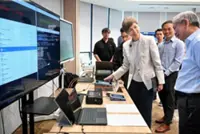PETALING JAYA: A hacker attack which may have led to data theft has seen the Social Security Organisation (Socso) become the latest government agency to find itself under the cybersecurity spotlight.
Experts are now raising questions about the measures the government needs to take to safeguard Malaysians’ personal data.





